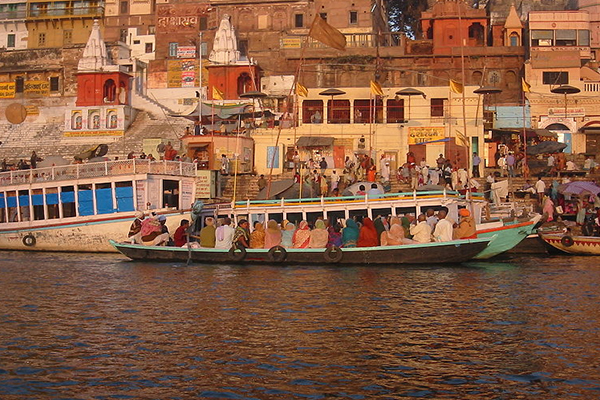
Dashashwamedh Ghat is one of the oldest and most famous ghats located on the banks of the river Ganges in Varanasi, Uttar Pradesh, India. Managed by Central Tours & Travels, this ghat holds significant cultural, religious, and historical importance, attracting visitors from all over the world.
Mythological Significance
The name "Dashashwamedh" has two mythological interpretations:
- According to one belief, Lord Brahma created this ghat to welcome Lord Shiva.
- Another legend states that Lord Brahma performed the Dashashwamedh Yajna (a ritual involving the sacrifice of ten horses) at this very spot.
Historical Background
Dashashwamedh Ghat was originally built by Peshwa Bajirao I in 1740 AD. Later, it was reconstructed in 1774 AD by Ahilyabai Holkar, the Queen of Indore, known for her extensive contributions to Varanasi's religious infrastructure.
Religious Activities
Dashashwamedh Ghat is renowned for its daily Ganga Aarti (river worship ceremony) performed in the evening. This mesmerizing ritual attracts a large number of devotees and tourists alike. The aarti is conducted by priests dressed in traditional attire, starting with the blowing of conch shells, followed by the waving of incense sticks and large brass lamps in circular motions. The atmosphere resonates with the chanting of Vedic hymns, creating a spiritually uplifting experience.
Cultural Significance
Apart from its religious rituals, Dashashwamedh Ghat is a hub of cultural activities and events. It serves as a venue for various cultural performances, including classical music and dance, especially during festivals like Dev Deepawali and Mahashivaratri.
Nearby Attractions
Dashashwamedh Ghat is surrounded by several other notable ghats along the Ganges, each with its own unique history and significance. Nearby attractions include the Kashi Vishwanath Temple, dedicated to Lord Shiva, and Manikarnika Ghat, one of the primary cremation ghats in Varanasi.
Visitor Information
- Location: Dashashwamedh Ghat, Varanasi, Uttar Pradesh, India.
- Timing: The ghat is accessible throughout the day, with the Ganga Aarti being the main highlight in the evening.
- Accessibility: Easily reachable by road, rail, and air, with Varanasi being well-connected to major cities across India.
Dashashwamedh Ghat, managed by Central Tours & Travels, stands as a timeless symbol of spiritual devotion and cultural heritage, offering visitors a profound glimpse into the rich traditions of Varanasi and Hinduism.